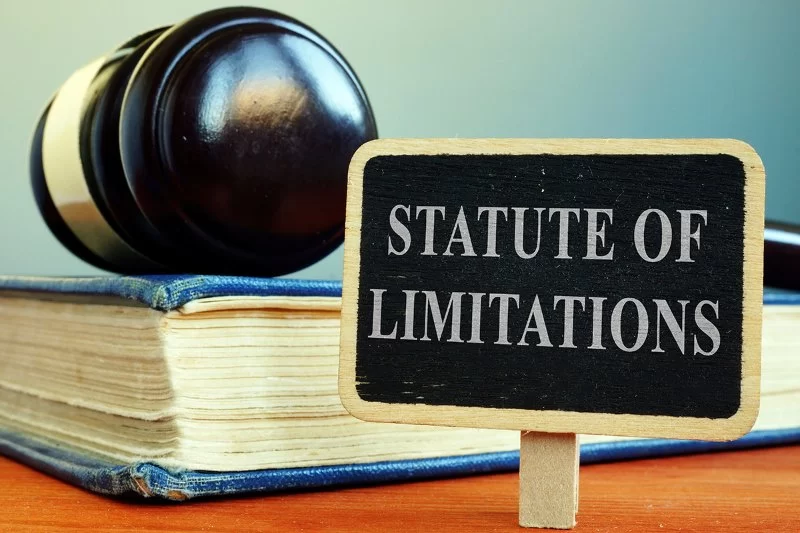- what-is-the-statute-of-limitations
- how-statutes-of-limitations-work-in-different-cases
- why-the-statute-of-limitations-exists
- exceptions-and-when-the-clock-stops
- real-world-examples-and-lessons-learned
- get-help-from-fred-miller-lawyer
1. What Is the Statute of Limitations?
The statute of limitations is a legal deadline for filing a lawsuit or taking legal action. In simple terms, it sets a time limit on how long someone has to sue after an incident occurs—whether it's a car accident, a breach of contract, or a criminal offense. Once that deadline passes, the right to bring a case to court is typically lost forever.
This legal principle applies across both civil and criminal law, although the timeframes vary widely depending on the type of case and the laws of each state. If you've ever wondered why some cases get dismissed “on a technicality,” chances are the statute of limitations was involved.
2. How Statutes of Limitations Work in Different Cases
2.1. Civil Lawsuits
In civil law, the statute of limitations usually starts from the date the harm occurred or when it was discovered. For example:
- Personal Injury: Most states give you 2–3 years to file after an accident or injury.
- Contract Disputes: Time limits often range from 3 to 6 years, depending on whether the contract was written or verbal.
- Medical Malpractice: Deadlines vary, but many states allow two years from the date of discovery.
2.2. Criminal Offenses
For criminal charges, statutes vary based on the severity of the crime. Felonies may have longer—or even no—limits, while misdemeanors typically carry shorter deadlines:
- Felony Assault: May have a 5- to 10-year window.
- Homicide: Often no statute of limitations at all.
- Theft or Fraud: Usually falls within 3–6 years, depending on the jurisdiction.
3. Why the Statute of Limitations Exists
3.1. Protecting the Integrity of Evidence
Over time, memories fade, witnesses move or pass away, and physical evidence may deteriorate. The statute of limitations ensures that legal proceedings are based on the most accurate, fresh evidence possible.
3.2. Encouraging Timely Legal Action
These limits incentivize claimants to act promptly. Courts value efficiency, and statutes help avoid backlog by eliminating old, stale cases that would otherwise clog the system.
3.3. Providing Closure for Defendants
Defendants deserve certainty too. Without time limits, individuals and companies could face legal threats indefinitely. This principle upholds fairness and the idea that justice should be timely as well as served.
4. Exceptions and When the Clock Stops
4.1. Tolling the Statute
Certain circumstances can pause or "toll" the statute of limitations. This means the clock stops running temporarily. Examples include:
- The injured party is a minor or mentally incapacitated.
- The defendant leaves the state or tries to hide their identity.
- Fraud prevented the plaintiff from discovering the harm right away.
4.2. Discovery Rule
In some cases, the limitation period starts only when the injury or wrongdoing is discovered—not when it actually happened. This is common in medical malpractice or toxic exposure cases.
5. Real-World Examples and Lessons Learned
5.1. The Missed Deadline That Cost Thousands
In one high-profile case, a contractor failed to file a breach of contract suit within the four-year limitation window. Even though the evidence was solid, the court dismissed the claim as untimely. A simple calendar oversight cost the company over $250,000 in potential damages.
5.2. A Medical Malpractice Case Resurrected
A patient in Texas experienced complications years after surgery. Her attorney successfully argued that the clock should start from the time the complications were diagnosed—not the date of the surgery—thanks to the discovery rule. The case proceeded, and she received a substantial settlement.
6. Get Help from Fred Miller Lawyer
Understanding what is the statute of limitations can make the difference between winning your case and losing your chance forever. If you’re unsure whether you still have time to file—or want to make sure you don’t miss a critical deadline—contact Fred Miller Lawyer. With a deep understanding of local and federal limitation laws, Fred Miller can help you navigate the timeline, file promptly, and protect your rights before time runs out.
Don’t let legal time limits catch you off guard. Act early, get informed, and let Fred Miller Lawyer be your guide to timely, effective justice.


 ahmad and associates
ahmad and associates james mcelroy diehl
james mcelroy diehl 1777 south harrison street
1777 south harrison street injury attorney fullerton
injury attorney fullerton sarah collins attorney
sarah collins attorney jason fine lawyer
jason fine lawyer